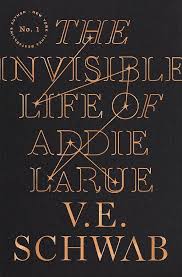Chapter XII
byChapter XII opens with Addie’s return to Villon-sur-Sarthe, France, on July 29, 1764, a return that marks the first time she has set foot in her childhood village in fifty years. The long walk she takes alone on the final mile into the village is symbolic of her internal conflict. While the journey outwardly suggests a simple return to her roots, internally, it represents a profound emotional upheaval. Despite being physically removed from this place for half a century, it is clear that Addie’s connection to her past runs deep. The pull of memories, both joyous and painful, intensifies her inner turmoil. Addie’s decision to walk alone through the village further emphasizes her sense of isolation and the need to confront her past without relying on the familiarity of others. As the village comes into view, she is filled with a mixture of nostalgia and dread, knowing that time has irrevocably altered both the landscape and herself.
When Addie arrives at her family’s property, she consciously avoids interaction with the people she encounters, suggesting that the passage of time has transformed her relationship with the village. The once-familiar scenery now seems foreign, as the village has expanded and evolved over the years. Despite this growth, a small, enduring symbol remains: the old yew tree near her childhood home. The tree, untouched by time in the same way that she has been marked by it, brings back flashes of her youth. However, as she draws closer to her family’s home, the realization of time’s destruction becomes evident. The house that once stood as a symbol of family and love is now a decaying ruin. This sight serves as a stark reminder that even the most cherished memories fade with time, and the physical remnants of the past, much like the memories themselves, deteriorate with age.
Addie’s visit to her father’s workshop amplifies this realization. The workshop, once a place of activity and purpose, is now a ghost of its former self, filled with decay and neglect. The discovery of smoke coming from the chimney initially gives her hope that something familiar may be inside, but this hope is dashed when she encounters her mother. The woman before her is unrecognizable—aged beyond recognition and unable to remember her daughter. This meeting, marked by the absence of any spark of recognition, underscores the profound alienation Addie feels upon her return. The encounter is painful, as it starkly contrasts the vivid memories Addie holds of her mother with the reality of her altered state. The emotional blow strikes Addie deeply, not just because her mother no longer remembers her, but because it symbolizes her own personal disconnection from her past.
Addie’s decision to leave without revealing her identity marks a pivotal moment in her journey. She recognizes that the connection she once had with this place, and even with her mother, is irrevocably gone. The act of walking away without saying a word is both an acceptance of the passage of time and an acknowledgment of her own detachment. Her return to Villon-sur-Sarthe was not meant to bring her any sense of closure but to face the uncomfortable truth that home is no longer what it once was. This realization is hard to accept, and as Addie walks away, she knows that she cannot go back, no matter how much she wishes she could. The village, with all its memories, has transformed in ways that are both physical and emotional, and her journey has only highlighted how much she has changed as well.
This chapter illustrates the poignant theme of the passage of time and its impact on identity, memory, and connection. Addie’s return to her hometown is a heartbreaking journey of self-discovery and confrontation with the reality that time moves forward, leaving nothing untouched. It highlights the painful truth that no matter how strongly we may hold on to the past, it slips away from us, and in the end, we are left to face the remnants of a life we can no longer claim as our own. Through this chapter, readers witness not just Addie’s physical return to her roots, but a deeper emotional reckoning that underscores the complexity of living in a world where the past constantly slips further from our grasp.


